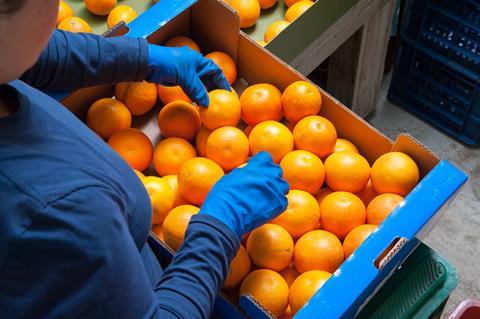Tough recovery in the Cape regions as damage from storms and floods emerges
The second conventional reefer vessel from South Africa carrying summer citrus from the country’s Western Cape region to the US is due to sail today (20 June) after weather conditions improved after more than a week of heavy rain and flooding.

It is the second conventional shipment of this year’s summer citrus campaign, which is due to continue until October and is expected to form the bulk of South African shipments.
A series of winter storms caused severe disruption in the Cape’s fruit regions. It brought citrus harvesting and packing to a standstill, while damage to road infrastructure caused problems for other industries and disrupted the movement of fruit to ports.
The main part of the Olifant’s River citrus growing region has been cut off from direct access to the port of Cape Town.
A key road connection via Mitchell’s Pass near Ceres has been closed and fruit trucks from both Citrusdal and Ceres have been diverted via the N1 freeway to get to Cape Town.
A spokesman for the Western Cape Roads Department said the Mitchell’s Pass has been damaged severely with substantial repairs required. This road is key for fruit and vegetable producers in the Ceres region.
The Western Cape government this morning estimated that damage from the storms could run between R750m and R1bn.
Growers in the citrus regions are reporting better weather today and it is hoped that harvesting can resume later this week.
“It is hoped that harvesting will resume soon, and fruit assembled for our fourth vessel which will start loading around mid-July,” said a spokesman for Anlin Shipping, which coordinates the US shipping programme.
The third vessel was already outside port and enough fruit had been assembled to start loading immediately, the spokesperson added.
Across the Western Cape, emergency teams are still assisting stranded communities, with a great deal of pressure on emergency services and road repair teams.
Growers said that hidden cost would emerge over time, resulting in a major setback for growers already struggling through tough economic times.



